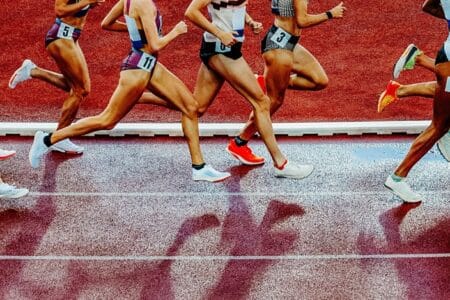This blog is part of our Research Roundup series, hearing from the Editors-in-Chief of our three journals, Physiology Reports, Experimental Physiology and The Journal of Physiology each month. Their blogs are featured in our Research Roundup, a monthly newsletter, summarising the recent research published in our family of journals.

Professor Kim E. Barrett
Editor-in-Chief of The Journal of Physiology
As I write this message, the Summer Olympic Games are starting to wind down in Paris. This quadrennial display of determination, commitment and national pride remains inspiring across all the events featured. From swimming to gymnastics to skateboarding, it is difficult not to be moved by the intense concentration and the clear sacrifices many of the athletes have made to take their shot at a medal, or even simply to compete.
It’s also great to see Great Britain so strongly represented in the medal tables despite our relatively small population, and of course also the juggernaut that is my adopted country, the United States. It was equally delightful to witness Julien Alfred win the first ever Olympic medals for the tiny nation of Saint Lucia; the joy of her countrymen was enough to warm the heart of even the most jaded amongst us. As an unabashed fan of track and field events, the performances have been stunning.
Of course, the Olympics are also a great showcase for the importance of physiology and physiological understanding. The pages of our journals are regularly graced with studies that elucidate the basic biology of skeletal muscles and the cardiovascular system. These papers also report on issues that may pose limits on human performance, ways to sustain that performance as we age and in the setting of disease, and strategies related to training, nutrition, sleep and methods of recovery that may allow athletes (whether we are Olympians or weekend warriors) to perform to the very peak of our abilities.
At The Journal of Physiology, we are proud to be a destination of choice for those seeking to publish their work addressing exercise physiology, an area where we have seen notable recent growth in both the number of submissions and their quality, above an already high bar.
And while they may not drive the same level of worldwide interest, scientists are competitors too. We were delighted to recently announce the winners of our Early Investigator Prize for work published in 2023. Like Olympians, our winners are an international group, hailing from Africa, South America, North America, and Europe, and with diverse interests ranging from placental function, breathing, and epilepsy, to gastric motility and the impact of training on muscle remodelling.
They, and many others, represent the future of the discipline, and give us great cause for optimism. More importantly, these prizes further cement our place as a hub of a worldwide community of scientific champions.

